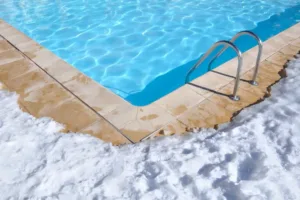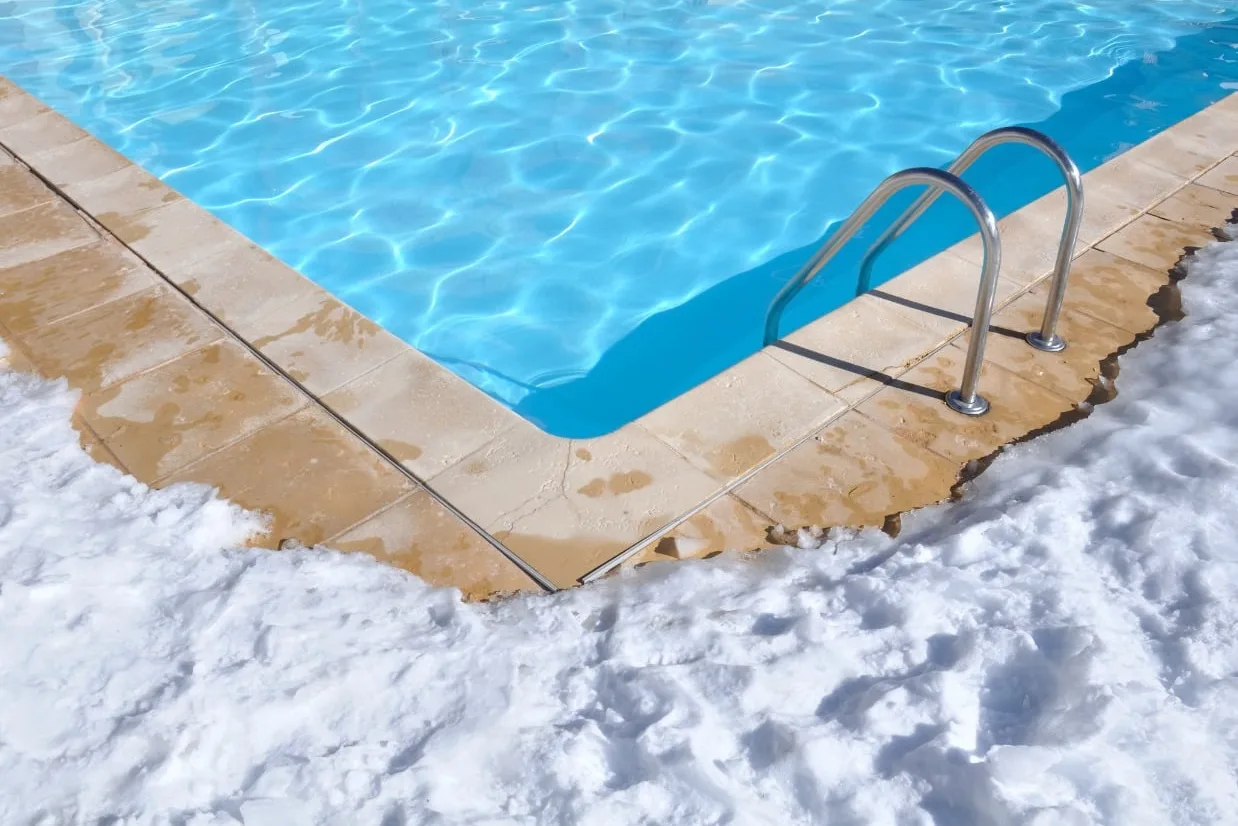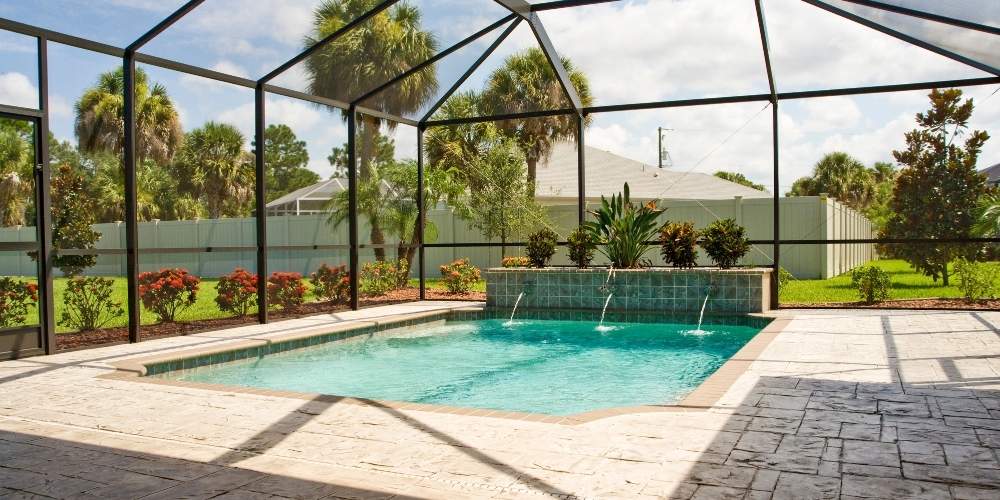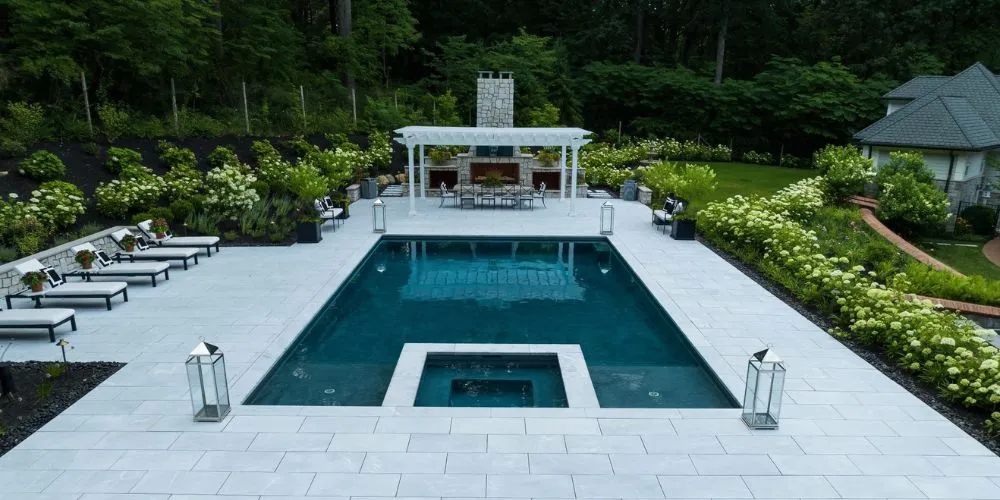For many of us, the biggest dream would be to own a backyard pool. Such a dream does, however, come with some additional work that must be done to maintain it during winter in good cleaning and functionality. Winterization of a pool adequately protects it yet makes opening a pool much easier for springtime.
This blog provides steps for maintaining a backyard pool in winter and action-specific, detailed tips on Winter Pool Care and Maintenance.
1. Clean the Pool Before Winterizing
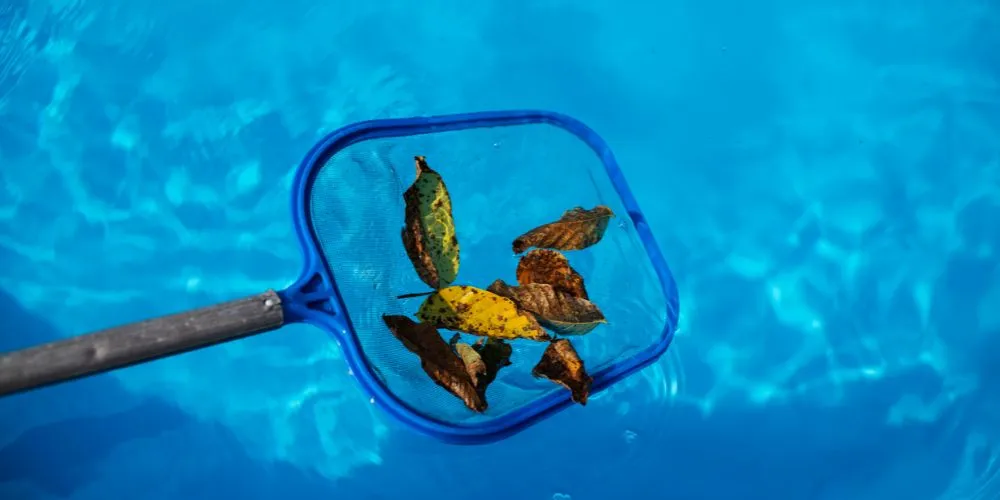
Clean your pool before winter. Remove any leaves, dirt, or algae. It will help keep the water free from contamination if you do not swim within this period. Ensure to clean walls and floors to get rid of remaining grime thoroughly. It gives a chance for a little issue- stains or bacteria- to develop as they might be within this period when you go out to chill.
2. Balance the Pool’s Chemistry
Proper water chemistry is essential for effective winter pool maintenance. To ensure your pool remains in good condition during the colder months, it’s necessary to regularly check and balance the following key parameters using a pool test kit:
- pH Levels: The ideal pH range is between 7.4 and 7.6.
- Alkalinity: Aim for an alkalinity range of 80 to 120 parts per million (ppm).
- Calcium Hardness: The recommended range is 200 to 400 ppm.
Maintaining balanced water chemistry is vital, as it helps prevent scaling, corrosion, and algae growth, ensuring your pool remains clean and well-maintained throughout winter.
3. Lower the Water Level
In preparing the inground pool for frigid weather care, the water level should be drained below the levels of the skimmer and the return lines of the pool to avoid freeze-related damages. Excess water draining can be handled with the help of a submersible pump or if the pool features a drainage system. Never empty the pool because this may also further lead to structural damage.
4. Use a Winter Pool Cover

Investing in a high-quality winter pool cover is an excellent strategy for protecting your pool during the colder months. A pool cover serves several essential functions:
- It prevents debris from entering the pool, keeps the water cleaner, and reduces maintenance efforts.
- It helps reduce evaporation, conserve water, and maintain pool chemistry.
- It minimizes the risk of algae growth, which can be a challenge during off-season periods.
Securely fasten the cover to ensure optimal protection. Additionally, regularly remove snow or water that has accumulated on top of it to maintain its integrity and effectiveness.
5. Run the Pool Pump Periodically
Running the pool pump is advisable to prevent plumbing lines from freezing, especially during freezing weather. Running the pump helps circulate water and reduces the chances of ice formation.
6. Add Winterizing Chemicals

Some pool winterizing chemicals are also used to get your pool to rest for the winter: algaecides and pool antifreeze. These two mentioned chemical treatments are designed to help protect your pool and water quality during cold weather.
Winterizing chemicals can offer several advantages:
- They help keep the water clear.
- They prevent algae from growing.
- They protect the plumbing from freezing temperatures.
Always follow the manufacturer’s instructions for dosage and application for the best results.
Also Read: Simple Steps To Winterize Your Pool
7. Inspect Pool Equipment Regularly
Examining all pool equipment, including the pump, filter, heater, and skimmer, is vital to ensure each component is in optimal condition. Detachable parts would be disconnected and brought inside to prevent damage from freezing temperatures. For fixed equipment, insulated covers could be applied to provide extra protection against harsh weather.
8. Don’t Forget About Safety
If your pool area is accessible during winter, take proper safety measures. Use fencing, alarms, and signage to prevent accidents. A winter pool cover also serves as a safety barrier if installed correctly.
Conclusion
Proper winter care for your backyard pool is essential to protecting it during harsh weather. To keep your pool in good condition over the winter, clean it, balance the water chemistry, cover it, and periodically check your equipment. By following these tips, you will be ready and waiting when spring arrives to enjoy your crystal-clear pool in all its brilliance.
Contact Custom Pool Pros for more pool care tips and all your swimming pool installation needs.
FAQ
1. Should you use chlorine tablets in the winter?
Chlorine tablets can be used during the winter to maintain water clarity and prevent algae growth. However, the tablets dissolve more slowly in cold water, so monitor chlorine levels periodically.
Also Read: A Comprehensive Guide To Pool Chlorine
2. Do chlorine pools freeze in the winter?
Chlorine pools can freeze if the temperature drops below freezing for an extended period. Running the pump occasionally and adding antifreeze to the pipes can help prevent this.
3. Do chlorine tablets dissolve in cold water?
Yes, but they dissolve much slower in cold water compared to warmer temperatures. Adjust the dosage as needed based on your pool’s chlorine levels.
4. How to keep pool water clear during winter?
To keep your pool water clear during winter:
- Balance the water chemistry
- Use a pool cover
- Add algaecides and chlorine tablets
- Run the pump occasionally
5. Do you have to drain an inground pool for winter?
No, you Do Not Need to drain an inground pool entirely for winter. Lower the water level below the skimmer and return lines, but leave enough water to prevent structural damage.


